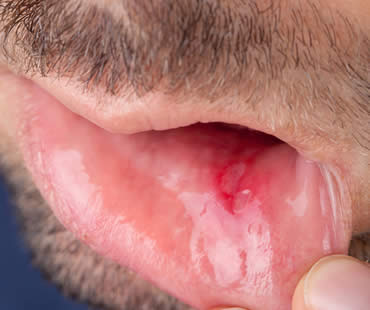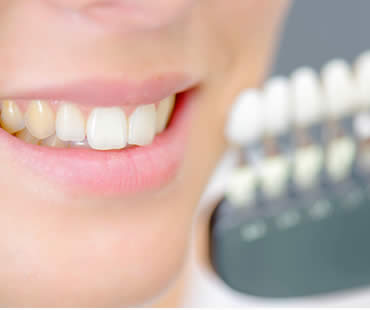
Are you unhappy with your smile? Do crooked, gapped or missing teeth affect you socially and professionally? Do you wish you had received braces as a child? Do you desire a brighter, whiter smile? Have you been dreading some upcoming special occasion, worried about how you’ll look in the photos or in person? If you have any insecurities about your smile, talk to a cosmetic dentist. How you feel about your smile can change.
There are so many “little” reasons to take steps to improve your smile, but you may need a bigger occasion, something very special, to help you take that first step. Is there a class or family reunion coming up? Nothing erases the years like restoring your youthful, attractive smile. Leave them doing a double-take as they realize who you are and how good you look!
Are you about to get married? At no point in your life are you likely to have as many photos taken of you as you will on your wedding day. These photos are often cherished for generations, and should represent the best you possible.
Even occasions like job interviews or first dates can warrant having your smile spruced up. Your smile is a huge part of the first impression you make on the people you meet, and with a brighter, whiter, more even smile, you will meet those people with confidence, unafraid to eat, drink, talk or laugh in public.
Your cosmetic dentist can talk to you about bonding, which allows the dentist to restore the shape of the original tooth using tooth-colored resin composites. Cosmetic contouring reshapes your teeth to correct overlapping, chipped or cracked teeth, and teeth whitening can be used to brighten your smile. Dental veneers can be used to cover gaps, discolored or stained teeth, and missing or broken teeth.
Do you have a mouth full of metal fillings? Your cosmetic dentist can remove this unsightly metal and replace it with a cosmetic filling that matches the surrounding tooth. No one will know you have fillings!
Don’t wait to begin your journey with a cosmetic dentist. You can face that special occasion with confidence and an attractive smile.
If you need a dentist in Lawrence MA contact us today

Pregnancy is an exciting time in your life that brings about many changes to your body. Your oral health is affected as well. There are specific things to keep in mind during pregnancy related to your teeth, gums, and caring for them. Let’s talk about the things you should be thinking about for your mouth while expecting a baby.
Medications:
Tell your dentist about any prescription or over-the-counter medicines you’re taking, so that it’ll be easier to prescribe any drugs needed for you during dental treatment. Your dentist may also want to consult your doctor to discuss safe painkiller or antibiotic options for you during pregnancy.
X-Rays:
If you have a dental emergency or a problem that needs diagnosis, an X-ray may be required. Radiation exposure from dental X-rays is very low, but your dentist will cover you with a leaded apron to protect your abdomen. A leaded thyroid collar will also be used to protect your thyroid from radiation.
Gingivitis:
It’s not uncommon for some women to develop pregnancy gingivitis, which is a gum problem that occurs during the hormonal fluctuations of pregnancy. This condition is an inflammation of the gums that causes tenderness, swelling, and usually some bleeding during dental hygiene tasks. Your dentist may suggest more frequent cleanings during pregnancy to prevent gingivitis, because left untreated it can advance to more serious gum disease.
Pregnancy tumors:
Some pregnant women experience overgrowths of tissue called pregnancy tumors, which appear on the gums mostly during the second trimester. They are not cancerous and are usually located between your teeth. Dentists believe they are related to having too much plaque. Pregnancy tumors bleed easily and appear red and raw. Usually they go away after the baby’s birth, but some women prefer to have them removed before then. Discuss options with your dentist to see what’s best for you.
Our dental office is located in Lawrence MA

The school year has started and kids are busy with school, sports, and social activities. It’s a challenge sometimes to get your kids to eat healthy when they are on-the-go, not only for their overall health but also for their oral health. Here are some tasty and healthy snacks that you can offer your kids, and chances are they’ll like them!
Yogurt:
Dairy foods help build strong bones, and they’re also great for a strong mouth. Eating low-fat yogurt provides calcium. Try mixing it with berries and granola for a healthy parfait, or making homemade fruity yogurt popsicles to attract your children’s attention.
Cheese:
Besides providing calcium, cheese helps fight cavities. It triggers saliva production, which washes away food particles in your mouth and the acids that can weaken your teeth. In these ways, cheese halts the process of cavity formation. Cheese not only contains calcium but also phosphorous, which both help rebuild the enamel on your teeth.
Blueberries:
These berries may be small, but they’re packed with Vitamin C, minerals, and folic acid. They also contain ingredients which studies show help prevent diabetes and cancer. Try adding blueberries to pancakes and muffins, or sprinkling them with a small amount of sugar and topping them with whipped cream.
Almonds:
Nuts like almonds contain ingredients to fight diseases, as well as Vitamin E, fiber, calcium, and iron. Most kids enjoy eating almonds raw, but remember they are a choking hazard for young children.
Whole wheat bread:
Bread made with whole wheat provides kids with iron, zinc, magnesium, and vitamins. Whole grain cereal offers calcium, fiber, and vitamins. Enjoying these whole wheat snacks with milk provides an even healthier snack for your kids.
If you need a dentist in Lawrence MA contact us today

In many households, the bedtime routine is no fun. One of the trickiest parts for some parents is getting their kids to brush their teeth. However, it’s not a part of your child’s routine that should be skipped. To help make taking care of their teeth fun for children, here are some ideas for parents.
Toothbrushes:
Provide your kids with fun toothbrushes! By choosing a brush decorated with their favorite character or color, your children will think of their toothbrush more like a toy than a dental tool. Consider getting more than one toothbrush, so each night they can choose the one they want to “play” with at the time.
Toothpaste:
Children are picky about their toothpaste flavors just like their foods. Select toothpaste that you know your kids will like. Some of the flavor options include bubble gum and fruits, as well as the standby mint.
Floss:
If they start flossing at a young age, your kids will likely view it as part of their oral hygiene routine all of their life. Try using some of the fun flossing tools on the market today, because they may help get your child interested in flossing. There are many colors and shapes to choose from, so keep trying until you find one that motivates your child.
Rewards:
Enticing your children with rewards is often an easy way to encourage them to perform a task without arguing. Consider making a rewards chart and giving them a sticker each time they brush and floss. By the end of a week filled with good dental hygiene, a special reward will await them!
Our dental office is located in Lawrence MA

Sores in or around your mouth are painful and unsightly. They can have a variety of causes, such as infections, irritation from orthodontics or dentures, and symptoms of another health problem. Here are descriptions of the most common mouth sores.
Cold sores
Also called fever blisters, cold sores appear around your lips, nose, or chin. These extremely contagious, fluid-filled blisters are caused by the herpes simplex virus type 1. Once you are infected with primary herpes, the virus remains in your body and occasionally flares up. Cold sores typically heal by themselves in about a week. Over-the-counter topical anesthetics may help, and your dentist may prescribe antiviral medications to reduce occurrences.
Canker sores
These small ulcers only appear inside your mouth. They are white or gray with a red border, and are not contagious. Experts are unsure of the exact cause, but suspect they are related to immune system deficiencies, viruses, or bacteria. Canker sores usually heal on their own in a week or two. It is advised to avoid spicy, hot, or acidic foods that can irritate the sore. Over-the-counter mouthwashes or topical anesthetics may help, and your dentist may prescribe antibiotics if a secondary infection occurs.
Thrush
Oral thrush, or candidiasis, is a fungal infection occurring when the yeast Candida albicans reproduces in great amounts. Common with denture wearers, it most often appears in people with weakened immune systems such as the elderly or ill. People with dry mouth or who are on antibiotics are also at greater risk for thrush. The key to controlling candidiasis is treating the condition that causes it. Dentures should be cleaned regularly and removed at bedtime, and dry mouth should be treated in an effort to lessen that condition.
Leukoplakia
Leukoplakia are thick, white patches that grow on the inside of your cheeks, gums or tongue. Common with tobacco users, they result from irritations from habits like chewing on your cheek or wearing ill-fitting dentures. Leukoplakia are also associated with oral cancer. Treatment focuses on addressing the reasons for the lesion, such as quitting smoking or replacing dentures.
Our dental office is located in Lawrence MA

It’s hard to miss with advertisements and visits to the dentist that tartar is something you want to avoid for good oral health. But do you know what this substance is, how to keep from getting it, and what to do if tartar does develop?
What’s so bad about tartar?
Even if you brush and floss regularly, it’s impossible to get rid of all of the bacteria in your mouth. Bacteria and food residue combine to form plaque on your teeth. If left to thrive, plaque attacks your teeth and gums. It causes decay, gum inflammation, and will harden into tartar if not removed before it has the chance.
What does it do to my teeth and gums?
Tartar buildup makes it more difficult to brush and floss well, and tartar along your gums may lead to gum disease. Mild gum disease, or gingivitis, is often caused by plaque and tartar on your teeth. It can usually be reversed with careful dental hygiene. If left untreated, it will progress into periodontitis. This more serious gum disease can damage the bones and tissue that support your teeth, increasing your risk of tooth loss. It may also cause infections that contribute to heart disease and other health problems.
How can I control tartar?
Here are some ways to prevent tartar formation:
- Brush at least twice daily long enough to thoroughly clean every tooth and all of your gums. Consider using an electric toothbrush, which may be more effective for plaque removal.
- Use tartar-control fluoride toothpaste. It is formulated to help prevent tartar formation, and the fluoride can repair damage to your teeth that may have already begun.
- Floss every day to reach the areas that brushing cannot.
- Eat a healthy diet low in sugars and starches, and limit snacks between meals. Drink plenty of water to help rinse away plaque and bacteria.
- Don’t smoke because tobacco use has been shown to increase tartar buildup.
How do I get rid of it?
A professional cleaning is the only way to successfully remove tartar. See your dentist every six months for checkups and cleanings.
Schedule your appointment at our Lawrence MA dental office










